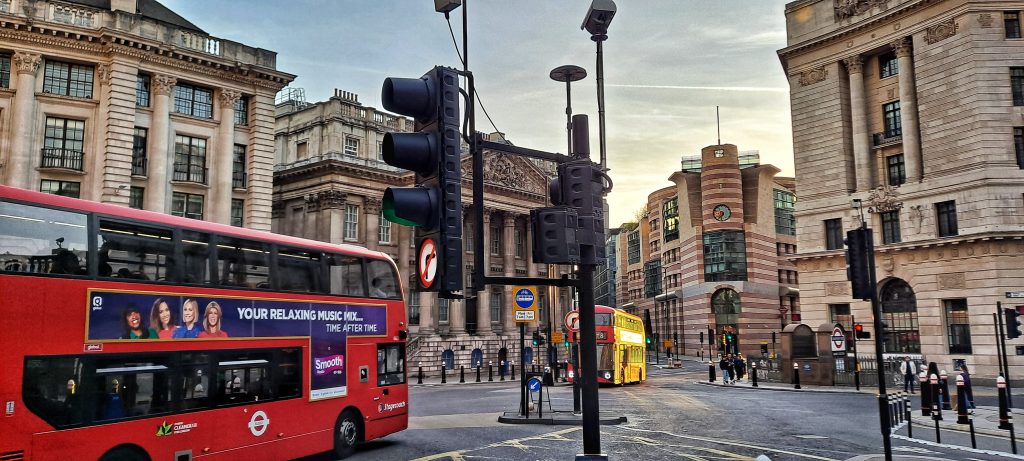Hello. 😊 Today I spent the day working on my laptop in the heart of London. London’s primary financial district is actually a city in itself. Known as The City of London. By taking photos at the headquarters of the Bank of England, I got the inspiration for this post. I thought to myself, here I am in the main financial district of this part of the world. You too can make your dreams come true. Have you ever wondered how it is that you earn well and you have no money? How to always have money in your pocket? Maybe you think your earnings are low. You can’t understand why your colleague can afford more despite the same earnings as you? Do you sometimes wonder what superpowers those who never run out of cash have? These superpowers are financial education and good organization. Money management is an important skill that we were not taught at school. Knowledge is the key to success. This post will help you change your mindset and succeed with your budget plan.

Money management for beginners. Self-audit
Money management and budgeting. Know your expenses
Live below your means
Save up the equivalent of your monthly salary
Free yourself from debt
How to budget your salary when you have irregular income or daily or weekly wages
How to afford big purchases
Financial cushion and random accidents
Money management and financial goals
Money management and investing
Money management and career planning, side hustles, passive income
End of the ultimate guide to money. Help people and enjoy your life fully
Money management for beginners. Self-audit
Before we get down to business, I want you to ask yourself a few questions. Answer them honestly and write down the answers on a piece of paper. At the end of the post, you will use these answers to improve your financial situation. How do you manage your budget? Where did you learn how to do money management? Do you have financial goals? What are you doing to achieve your financial goals? What are your financial habits on a daily basis? Do you think you are making your financial decisions wisely? Ready? Here we go 😊



Money management and budgeting. Know your expenses
Spending money is simple and fun. However, not many people are aware of how much they actually spend. Usually, we can guess or estimate how much everything costs us, but when we analyze the past months, it turns out that the real amounts are completely different. Know your data. Analyze your expenses over the past few months, maybe even the entire year. If you pay by card all the time, it is easier. If you pay in cash, things get more complicated. From now you will have to start collecting all receipts to note your expenses. The next step is to save your expenses into the appropriate categories. Why do this? You need to know your financial habits and specific numbers to be able to plan for the next months. Review your bank statements and collected receipts in a given month. Create appropriate categories on a piece of paper. Break down your expenses into two main categories: fixed expenses and variable expenses. Fixed expenses are expenses that you have to make each month, no matter what the circumstances. Such expenses include fees related to accommodation: rent, mortgage instalment, fees for water, electricity, gas, and internet. Other necessary expenses are food, transport, e.g. bus or underground tickets, fuel. If you have addictions that are difficult for you to give up, such as smoking, include this expense in your fixed expenses. If you pay off your credit cards and loan instalments, they must be here as well. The second category will be variable expenses. This category includes all expenses that may be of equal importance, but the amount you spend on them every month is variable. These can be expenses for clothes, cosmetics, hygiene articles, entertainment, travel, and larger purchases. Observe how much you spend in each category. Do you spend more than you thought, or maybe as much as you thought? Some expenses may shock you. How to manage your budget? Plan your budget for the next month. Take a look at your expenses and use simple math. Think how much you would like to spend and how much to save. Manipulate data to plan expenses only for what you really need. Analyze your habits. Maybe the habit of buying takeaway coffee is pointless, as you’d rather spend more money on travel? Maybe shopping for food in the city centre costs you too much and you decide to take your food to work? Your budget allows you to look at your habits from a new perspective. If you really want to keep your finances under control, you need to plan and stick to it. This is the only option and there are no shortcuts. Check every week if you are still on the right track, or are you starting to spend more than planned in some categories of expenses? Stay on course and make corrections. Now you know how to manage your budget.


Live below your means
If you have followed the previous step, you are finally fully aware of where your money is going. Now you need to understand that no matter how much you earn, whether you are a millionaire or working for the lowest national income, to get rich you must live below your means. This universal law always works, in every country, on every continent. The thing is to spend less than you earn and not feel uncomfortable with it. You can say, but wait a minute, I like my lifestyle. I pay off my credit cards on time and have everything I want. Perhaps this lifestyle is comfortable, but by spending money that does not belong to you, you will always run out of money. The same is true when you spend everything you earn and at the end of the month, you are at zero. Have you heard the rule, “pay yourself first”? What happens when you do not budget? By spending your entire wages at the end of the month, you are left with around zero. So where did your money go? It is simple, you passed it on to other people: store owners, manufacturers of electronic gadgets or travel agencies. And you have nothing left. You have been working hard all month just to give money to others. It is a road to nowhere. You can fix it. Take a look at your budget and think about which expenses you can reduce and how much money you can save each month. Keep the money saved in a savings account in your bank. In the bank? After all, inflation will eat my money. By reading the post you will understand why part of the money is better kept in the savings account.

Save up the equivalent of your monthly salary
You improved your budget. You know where your hard-earned money is going. You started saving money. How much money do you actually need? At this stage, save up the value of your one-month paycheck. Why? You will buy yourself something very valuable this way – a sense of stability. In case of a sudden loss of job, illness or any other random event, you will not have to stress so much. Stabilization will allow you to sleep peacefully and will give you more time to improve the situation, e.g. finding a new job, without going into debt again. Soon you will get free from debt. At this stage, I want to mention one more important thing. If you have lived on credit for your entire life, having one extra salary in your wallet may seem like a huge amount of cash to you. You have been saving for so long and you would not want to waste it. You may wonder what to do with this money, how to invest it. At the moment you will not invest. Trust me, it is not time to invest yet. You should make sure that you have easy and quick access to this cash in case of an emergency. A savings account will be a good solution because accessing money will take a few minutes or a day.
Free yourself from debt
Congratulations. You are in control of your finances and have saved up the value of your one-month salary. Sit down and enjoy this feeling, because you are in the minority compared to those who spend all their money. It is possible that you were just like that not so long ago. See how far you have come today. This is not the end of this path. Calculate all your loan instalments every month. Do not include your mortgage, we will take care of it later. How much is this amount? Much or little? What would you do with that money if you did not have to pay it to the bank every month? Exactly … time to take care of it. Start paying off your loans ahead of schedule. Yes, you heard right. Yes, I know you pay your instalments every month, but that is not enough. We want to get rid of the loans as soon as possible. Imagine that you are sitting on the beach in a warm country sipping a delicious drink knowing that you are a free man because you have NO loans. How does it sound? You can achieve this debt free feeling. Do it for yourself. Get rid of your debts. Use the money you have put aside every month. You can do it without worrying because you have one paycheck saved. How to free yourself from debt? There are various methods of paying off loans, it is very popular to start with paying off the loan with the highest interest rate. However, I recommend starting with paying off the smallest loan to be able to use the snowball effect. By paying off the first loan, you will get additional cash per month of the value of this loan instalment. Use it to be able to spend even more on paying off your next loan and so on until you get free from debt completely.

How to budget your salary when you have irregular income or daily or weekly wages
I do not know where you live and from which country you are reading my blog at the moment, but according to google statistics, I am visited by people from all over the world (except Antarctica 😃). Therefore, I decided to outline the situation for you, so that you have a complete picture of how a paycheck can be paid. People in different countries and professions may be paid wages at different intervals: Every day, mostly students or people with additional or seasonal work. Weekly, for example, employees hired by employment agencies. Monthly, is the most popular method of payment of wages. Quarterly, usually as bonuses of various kinds. Seasonal, e.g. employees of seasonal industries such as the tourism industry. In some situations, budget planning can be complicated if you do not know exactly how much you will earn. How to deal with this? Simple, just live off your previous paycheck. I’m explaining now. The moment your salary is in your account, you immediately transfer the full salary to your savings account and do not touch it this month. If you have more than one payout per month, you transfer all these payouts to your savings account. When the first day of the month comes, you transfer from the savings accounts to the current account only as much money as you will need for expenses for the entire month. It looks a bit like you are paying yourself a salary set by yourself. How much? You know best. You have planned your budget for the next month, so you know exactly how much you plan to spend during the month. Thanks to this method, you know exactly how much money you have earned because you actually earned it earlier. The money was just waiting in the account. When the next payouts arrive in another month, you transfer them to the savings account again and with the start of another month, you pay yourself your paycheck. This method is super effective and I recommend it to everyone, even those who have a monthly salary. It is perfect for changing jobs when you often have to wait over a month for the first salary from a new job. The only downside to this method is that you need to save some cash to get started.

How to afford big purchases
You enjoy freedom from debt. You probably think that now it is time to buy something on credit. Do not do this. Sure buy yourself something as a reward, maybe even go on holiday and have a drink on the promised beach. Why not? However, do it with your money, not the bank’s money. You already know how to save money. Think about what you would like to spend it on, count how much money you need and just put it aside. From now on, every major purchase should be well planned. There are three benefits. First benefit: It may take some time before you put your money aside. You may find that you have changed your mind and do not want to buy this expensive thing because you are not that into it anymore. You will avoid impulse buying of things that you quickly get bored of. The second benefit: you will pay what the thing is actually worth. It is not a secret that when paying off the loan, we pay more than the amount of the loan we initially borrowed. The interest on the loan makes you pay more than the thing is actually worth, and you waste your money. Why would you do this? Third benefit: satisfaction. Imagine that you bought something that you wanted to have for a long time: a purse from a famous designer or the latest gaming laptop. You paid for it with your own saved money. Maybe you had to wait a few months, maybe years. You do not feel guilty, because this purchase did not put you in any financial trouble. You have afforded this purchase. Now you are looking at this shiny new toy, you are touching it. What do you feel? This is satisfaction.


Financial cushion and random accidents
As you know, life is life. It is difficult to predict all possible scenarios that will happen to us. Car breakdown, illness, loss of job, burglary or theft. It happens that we need cash at the last minute because something we could not have predicted happened. Are you sure? I agree that we cannot anticipate every crisis situation, but we can predict that sooner or later something will happen. This is certain and you can prepare for it, and even you have to if you don’t want to lose your financial stability. So what can you do? Set aside a financial cushion that will allow you to pay all your expenses without income in case of unemployment or illness. Set aside a financial cushion for car repair or other unplanned expenses. What is a good financial cushion? The most common method is to save 3 to 6 times your monthly paycheque. You already know all your monthly expenses, so assuming that in the event of a crisis, you will only spend money on what is necessary, you can decide to put aside 3 to 6 times the monthly value of your expenses, and not, as I said before, your income. The choice is yours. For example, if you are the father of three and have a mortgage, or are living on an irregular source of income, you may want to consider putting your cash aside for an extended period of time. Maybe even a year? I leave the decision to you. Each of us is different and needs a different financial cushion and stability to feel financially secure.



Money management and financial goals
Do you already have a financial cushion? Welcome to a world where the real fun begins. You earn money and you can spend a lot of money on whatever turns you on, gadgets or travels. You can afford it because you are in control of your finances. You have a financial cushion set aside, so you may consider a career change to another. You can quit the job you hate. You do not have to worry that your boss will fire you because you can easily find another job within 6 months if you have previously set aside such an amount of money. Remember to rebuild your financial cushion as quickly as possible, using the budgeting and saving skills you built up earlier. Set yourself ambitious financial goals and monitor from time to time how far you have come, and how much is ahead of you. Set aside money for the car you dreamed of, for your own house deposit, for early mortgage repayment, for the development of a hobby into a profitable business, for a several-month trip around the world … whatever you want. You know best what you dream of in life.
Money management and investing
When you reach some of your financial goals, you’ll quickly understand that the money you previously lacked so much is no longer a problem. You will find that spending more money does not necessarily mean you will be happy in life. You will probably naturally limit the spendings you make. This is a good time to invest your excess money. There are many, too many ways to invest to mention them in this post. I will write about this topic in the future. For now, I will mention a few so that you have an idea of what I am talking about if you have never invested before. Some of the many ways to invest are, for example: real estate, gold, currencies, stock market, bitcoins, startups. What is investing? Investing is the act of allocating money, with the expectation of generating an income or profit. In other words, the money you have invested generates more money, even when you are asleep or on holiday. Sounds like a fairy tale? You need to know that investing carries some risk of losing your capital. Therefore, I do not recommend investing until you create your financial cushion.
Money management and career planning, side hustles, passive income
How to do more money? You probably already know that you can improve your financial situation in two ways: by reducing expenses and by increasing your income. We have already talked about reducing expenses. Now it will be about increasing income. How can you earn more if your boss does not want to pay you more and you are already exhausted by doing overtime? I will tell you. You need an additional source of income. A great solution is an extra income that you can generate by using your time and skills. Do you have an hour? Walk out the dogs of several neighbours at the same time. Are you good with computers? Fix other people’s computers. Do you like cleaning and your house shines with cleanliness? Hire yourself to clean private apartments or hotels. Make sure you earn more per hour with your side hustle than by working full-time. These types of jobs also have an additional advantage, they can be easily converted into your own business. Do not waste your time and think about what you are good at and how you can make use of it. Another option for earning extra cash is passive income. What is passive income? Passive income means that you earn money by not doing any work. In practice, such an ideal passive income does not exist, but some incomes are quite close to that ideal. Examples of passive income: renting off a flat, garage or room, profits from the company you have invested in but do not work in, dividends from the stock market. There is also a more traditional way to increase your earnings – promotion and career development. Just think about it. If you spend 8 hours at work anyway, why not try harder and earn more after getting promoted, and then another promotion and another. I will write about additional sources of income many times because there is an infinite number of them. Planning and career development will also be present here many times. I recommend you check my blog for more information.



End of the ultimate guide to money. Help people and enjoy your life fully
The end of this post is slowly approaching. I have described some general rules that should be followed in order to always have money. I guarantee you that if you follow them, you won’t get hurt, and you will even have a chance to make your dreams come true. 😊Make sure you don’t lose focus on your goals because money is a tool to achieve goals, not a goal itself. Don’t keep the money just to enjoy the numbers in your bank account. Spend it wisely to enjoy life and help others. Nothing will make you feel richer than the gratitude of those you have helped.
Lastly … Do you remember that paper with the answers to the questions? Read these answers. If your current situation does not look right, I can help you start changing it. Take another sheet. On a blank piece of paper, write down your answers to the following questions and treat them as an initial plan to improve your financial situation. Answer these questions → When (specific date) will I start doing my budget? Where can I find knowledge about managing my finances? What are my dreams and financial goals? What can I do to achieve these goals? How can I change my bad financial habits? What financial decisions in the past could I have made differently? I am sure this post will give you a lot to think about. The path to a better future will not be easy. It won’t be easy, but you know what? It will be worth it. Let me know how you’re doing. You can catch me on instagram. Have a great financial journey through money management and budgeting. I hope you have enjoyed my ultimate guide to money. See you next time 😊
Check out my travel post Elvaston Castle Park and how to search for the best places.
1 Comment
https://twicsy.com/uk/kupuyte-pidpysnykiv-v-instagram · 17 December 2022 at 11:37 pm
Гарний пост, я поділився ним із друзями.